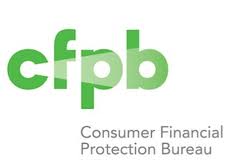Protecting yourself against predatory lenders, mortgage scams, and Loan officers screw-ups
Mortgage rates are amazing. That’s great news for veteran loan hunters.
But for inexperienced shoppers who don’t watch their backs, the mortgage business can still be a scary place to travel.
The internet especially has make it easier for sly lenders to mislead and take advantage of naïve consumers using any number of tricks, from quoting bogus rates over the telephone to slipping gratuitous costs into their loans. To avoid these problems — as well as other trip-ups posed by the confusing mortgage process itself — consumers have to brush up on their mortgage shopping skills.
Market is ripe for tricks and trip-ups
In the past few years, when the market was hot, a lot of rookie Loan Officers and small brokers came into the market that may not have the experience level you’re comfortable with. There was money to be made, and it was easy. Just sit back, and the phone will ring with customers wanting to refinance. The number of lenders and Loan Officers TRIPLED from 2001 to 2005. Lending volume also TRIPLED to the highest numbers in history!
Since the mortgage market meltdown, which really kicked into high gear in mid 2007, mortgage volume is down dramatically, and many companies are desperate to stay in the business. They will say and do anything to capture a deal.
The reality is that most lenders and brokers aren’t out to fleece customers and the complexity of the home loan process — rather than anyone’s malfeasance — takes the blame for some of the obstacles consumers face. Many trip-ups don’t rise to the level of “predatory lending” either, regardless of what the media claims. Nevertheless, they can cost borrowers serious time and money, and guarding against them becomes even more important during the boom times.
There’s kind of a range of games that get played and they’re pretty broad, from fairly benign stuff to outright fraud.
Problems can pop up long before a borrower fills out any paperwork. Indeed, just finding out how much a mortgage closing costs can be confusing, especially when looking at the new Good Faith Estimate when you are used to the old Good Faith Estimate.
Be as specific as possible
Many potential customers simply call lenders up and ask, “What’s your rate?” But they fail to indicate what kind of loan they need, how long of a lock period they want, how many discount points they’re willing to pay, how long the rate is good for or anything else. Consumers have to specify all of these things or lenders can pretty much say whatever they want, then provide different figures when the customers come in and blame the lack of specificity.
A loan with a lock period of just 15 days, for instance, usually has a lower rate than one that a consumer can lock in for 60 days. Most consumers opt for loans with longer locks because they need more than two weeks to close. But loan officers sometimes quote rates on their shortest-lock loans over the phone or in print just to sound cheap, knowing full well that many callers will never be able to obtain those loans. Companies can provide interest rates that include several discount “points” to make their rates look better, even though most of our customers either can’t or don’t want to put down several thousand extra dollars at closing for “points” to lower the interest rate.
In most of newspapers, once a week or more, they’ll have a list of rates by lender. But frequently you’ll find the rates they put in the paper were rates that were really never available. They kind of low ball their rate. When you come in, they’ll tell you the market has moved and the rates are now higher. They get away with this because the rate they list in the Sunday paper is usually submitted on Thursday. You read the paper on Sunday, then call the lender on Monday…
Figure in the fees
Borrowers often forget to ask about fees, and don’t compare lenders based on their closing costs. That allows companies to pad their bottom lines by adding “processing fees” and other miscellaneous charges to the loan at closing. Lenders don’t control certain fees for services provided by third parties, such as title searches and appraisals. But they can adjust their own fees.
Don’t believe everything you read
It’s a competitive business. Lenders understand this, so creative advertising is everywhere. Consumers need to watch out for advertising tricks, too. Companies have been plugging “no cost” refinance loans lately, but the tagline really means “no out-of-pocket costs at closing.” Borrowers pay higher rates on these mortgages and lenders use the extra money to pay the costs themselves. There is no such thing as a no closing cost loan!
The annual percentage rate, or APR, found in advertisements can be misleading as well. Mortgage lenders don’t always include all the fees they charge in the calculation that determines APR, so customers who use that figure to shop rather than an itemized breakdown of rates, points and fees may end up comparing apples to oranges.
Of course, it’s difficult for borrowers to compare fees when they don’t know what they are. By law, lenders and brokers don’t have to give what’s called the Good Faith Estimate document to customers until three days after they apply. But there’s nothing preventing shoppers from asking for it before committing to anything. Reputable lenders will provide one. Please read my article- Beware of the Bad, Good Faith Estimate, so you know what to look for when you do get your estimate!
Banker, Broker, or Direct Lender. All are “Loan Officers”, so who is best?
When you’re looking to get a mortgage loan, you may work with a loan officer, but where they work makes a difference! People often confuse the lender types even though all will glean the same results: a home loan. However, it is important to understand the difference between the three types of lenders so you know what to expect from them during the mortgage application process.
Currently the industry is seeing the biggest problems with loan officers exactly where most customers wouldn’t expect. The big banks. Why? Most states have enacted strict guidelines for non-bank lender and brokers. These include criminal background checks, mandatory education, stricter underwriting guidelines, mandatory disclosures, and more. BUT, state banking laws can not trump federal banking law. Federally Chartered Banks (all the big bank names you know) only have to follow less restrictive federal law. Basically they get to do whatever they want! Thanks Washington!
- All Loan Officers are required to have an NMLS number (Nationwide Mortgage Licensing System and Registry). This gives the FALSE APPEARANCE of bank loan officers having a license.
- Bank employees are NOT required to have background checks, do not need any state or federally mandated up-front or ongoing education, and do not have pass any state of federally mandated tests to be a loan officer. They could have been flipping burgers yesterday!
- All NON-BANK Loan Officers MUST have a personal license.
Know the score
After customers apply and have their credit scores pulled by their lenders, they should ask for those too. Companies have no obligation to share them, but those scores often dictate whether borrowers get loans and how much they have to pay for them. Customers who obtain their scores can get rate quotes tailored to them, rather than receive quotes that may apply only to borrowers with better or worse credit.
If I would say at the application stage to my lender, “Hey, when you pull my credit report, will you tell me what my scores are?” and he said no, I think I would go somewhere else. Why not go with somebody who is willing to tell you? You need to know.
Last-minute maneuvers
Closer to closing, borrowers also have to watch out for counteroffers from their current mortgage lender. When borrowers refinance their loans, their new lenders request “payoff letters” from their old lenders. These letters spell out exactly how much the old lenders are entitled to at closing and are often the only indication that a borrower is refinancing.
To avoid losing customers, lenders who are about to get the boot sometimes swoop in and offer to lower their borrowers’ rates or refinance them into new loans themselves. While the offer may sound competitive, they almost always are aren’t so.
Another source of confusion is the assumption that your current lender can do a loan for lower fees. The vast majority of the time this is NOT true. Loans are ‘packaged’ to be resold. The vast majority of lenders resell their loans and therefore any changes to the original loan require a complete new package, new closing, new note, new closing costs, new appraisal, new everything, etc. Plus, they usually come very late in the process. Borrowers who accept them can end up having to forfeit application fees or other monies to the lenders they planned on using.
By learning about all of these miscellaneous traps, consumers can take advantage of today’s lower rates and refinance without worrying about being taken for a ride. After all, experts say, preparation is the best defense against shady lending practices.
It comes back to education. If I’ve called five respectable lenders – I know about what rates and costs are. It’s going to be pretty easy for me to know whether one lender is pulling the wool over my eyes.
How do you know if they are are respectable lender? Read “How to Shop for a Lender” for some good clues.
One final word of advice. OUT STATE INTERNET LENDERS, NO MATTER WHAT THEY CLAIM, can NOT offer you anything you can’t get from the local lender down the street. These out state lenders are by far the worst in terms of misleading quotes, miscellaneous traps, and shady lending practices as they have no connection to the community YOU live in.
Need a great lender in MN or WI? Apply HERE. Have an answer in a few hours.
.

 That’s correct, rare is their offering the best deal, and many times, the consumer is paying a significant premium for the related company services. Because the related provider costs more, if allowed to shop, it would usually put their own overpriced companies at a competitive disadvantage. Therefore many companies employ tactics to scare or otherwise discourage clients from shopping. The aforementioned builder incentive is classic. People, the builder is NOT giving away anything. The appliance allowance, or finished basement upgrade is already built into the price of the house. They only “offer” that as a great incentive for you to also use their MSA partner.
That’s correct, rare is their offering the best deal, and many times, the consumer is paying a significant premium for the related company services. Because the related provider costs more, if allowed to shop, it would usually put their own overpriced companies at a competitive disadvantage. Therefore many companies employ tactics to scare or otherwise discourage clients from shopping. The aforementioned builder incentive is classic. People, the builder is NOT giving away anything. The appliance allowance, or finished basement upgrade is already built into the price of the house. They only “offer” that as a great incentive for you to also use their MSA partner.



